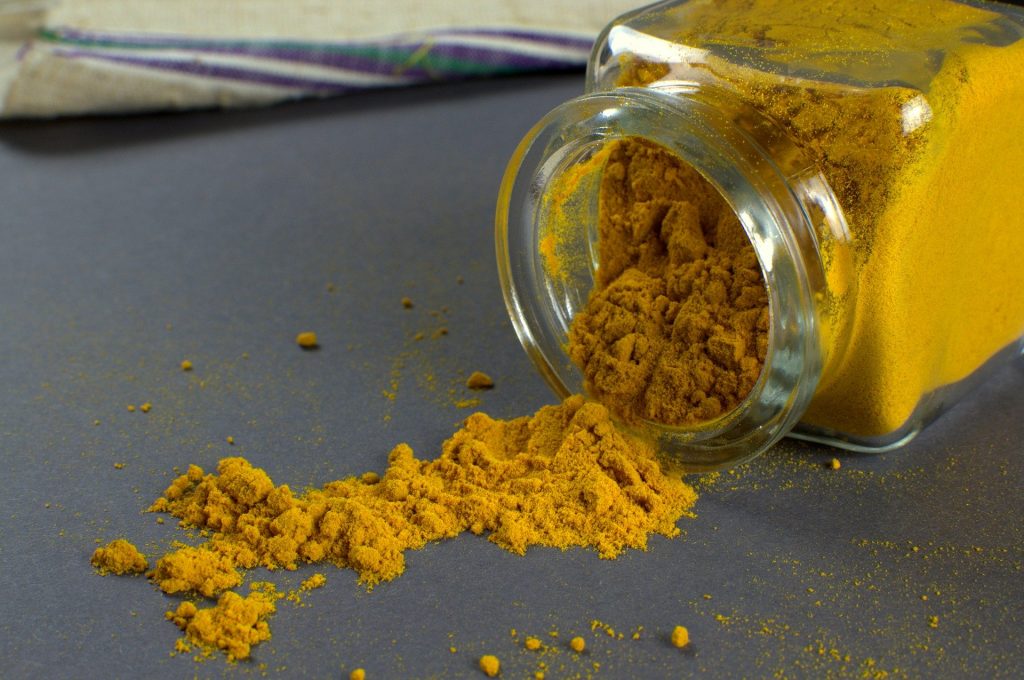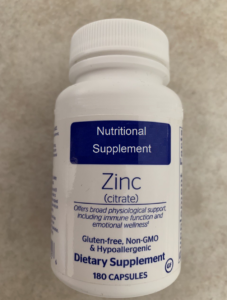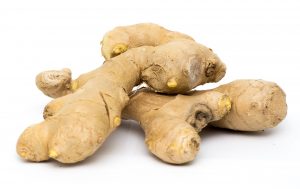Curcumin: A Natural Anti-Inflammatory

Curcumin is a bright yellow-orange pigment found in the kitchen spice turmeric. If you’ve ever had yellow curry, you’ve had turmeric. Turmeric has been a revered herb for thousands of years in Ayurvedic medicine, a style of natural medicine practiced in India.
More recently, scientific research has dramatically increased on turmeric and curcumin for their anti-inflammatory and health promoting properties. The vast majority of chronic health conditions have chronic inflammation at their core. Due to curcumin’s anti-inflammatory effects, it’s easy to see why I often prescribe curcumin to my patients.
A Partial List of Researched Conditions Treated with Curcumin:
- Osteoarthritis
- Depression
- Diabetes
- Multiple Sclerosis and Amyotrophic Lateral Sclerosis
- Cancer
- Osteoporosis
Arthritis
Evidence is beginning to support the use of curcumin to treat osteoarthritis. Osteoarthritis is generally described as joint damage and pain from wear and tear. A recent study on knee osteoarthritis showed curcumin performed as well as the anti-inflammatory drug diclofenac with significantly less side effects (Shep 2019).
Other studies have shown benefits as well. Curcumin was shown to reduce pain in osteoarthritis (Haroyan 2018). A 2014 study showed a relatively low dose of an absorbable curcumin was modestly effective for knee arthritis. The curcumin reduced symptoms and decreased the need for other anti-inflammatory drugs (Nakagawa 2014). Another study on knee arthritis showed improved pain and function with curcumin as well (Panahi 2014).
Depression
Pretty much all mental health conditions have roots in brain inflammation, which I’ve written about previously. Curcumin is starting to show potential for helping a number of mental health conditions, likely in part due to its anti-inflammatory effects.
A recent meta-analysis looked at the research on using curcumin for depression. While they advocate for more research of longer duration, the current data supports beneficial effects. Curcumin was safe, well-tolerated and effective for treating depression (Ng 2017).
Blood sugar problems and diabetes
A review in 2015 showed anti-diabetes effects of curcumin. Diabetes causes damage through a process called glycation. Glycation is where a sugar gets permanently stuck to a protein or a fat and makes them dysfunctional. Curcumin appears to block this damage. It also appears to help decrease blood sugar levels (Nabavi 2015).
One of the studies on diabetes showed a significant 0.75 point drop in hemoglobin A1C, a marker for elevated blood sugar, along with reductions in fasting glucose and triglycerides. The dose of curcumin used was modest, only 300 mg per day (Na 2013).
Multiple Sclerosis and Amyotrophic Lateral Sclerosis
Multiple sclerosis (MS) is an autoimmune disease where the nervous system attacks the myelin or covering of nerve fibers throughout the body. It is a difficult condition to treat. A study with curcumin showed improved immune function and decreased disability in MS patients (Dolati 2019). For the study they used an absorbable nano form of curcumin.
A preliminary study on curcumin for amyotrophic lateral sclerosis (ALS), also known as Lou Gehrig’s disease, showed a slow down in progression (Chico 2018). ALS is also difficult to treat; any improvement is impressive. One of the standard approved treatments for ALS increases survival by only 3-6 months.
Cancer

Oral leukoplakia are precancerous white lesions in the mouth that can progress to mouth cancer. Standard treatments aren’t overly effective to permanently eliminate them. A trial of curcumin showed benefit in eliminating lesions more effectively than placebo. In most individuals that cleared their lesions, the lesions didn’t come back (Kuriakose 2016).
A study on patients with solid cancerous tumors showed benefits with curcumin. Patients undergoing standard treatment combined with curcumin had a better quality of life (Panahi 2014).
Individuals with monoclonal gammopathy of undetermined significance and smoldering multiple myeloma have increased risks of developing blood cancer. Typically, these conditions aren’t treated unless they become cancerous. Curcumin treatment improved the blood profile, potentially slowing the progression of these conditions (Golombick 2012).
Another study on preventing colon cancer showed decreases in precancerous lesions with curcumin. Dosing was key, as 2 gram/day was ineffective. Four grams per day decreased lesions by 40% in one month (Carroll 2011).
An early study in pancreatic cancer also appears to support curcumin use with standard therapy. Patients on the curcumin had good response rates using standard treatments combined with curcumin (Pastorelli 2018).
Studies in prostate cancer have shown a decrease in PSA, a cancer marker used to track disease progression. However, curcumin didn’t significantly change the course of the disease (Choi 2019, Saadipoor 2019).
Osteoporosis
A trial combining standard therapy with curcumin for osteoporosis showed better improvement in bone density than with drug therapy alone (Khanizadeh 2018). Other evidence supports the claim that curcumin on its own decreases bone loss (Hatefi 2018).
Conclusion
Curcumin is a promising treatment for a number of different conditions. The main challenge is absorption, since curcumin is very poorly absorbed from the digestive tract. Better quality products have added compounds or modified the curcumin to improve absorption. Bioperine, a component of black pepper; lecithin, an emulsifying agent and nano-sized curcumin are all strategies for enhancing absorption.



